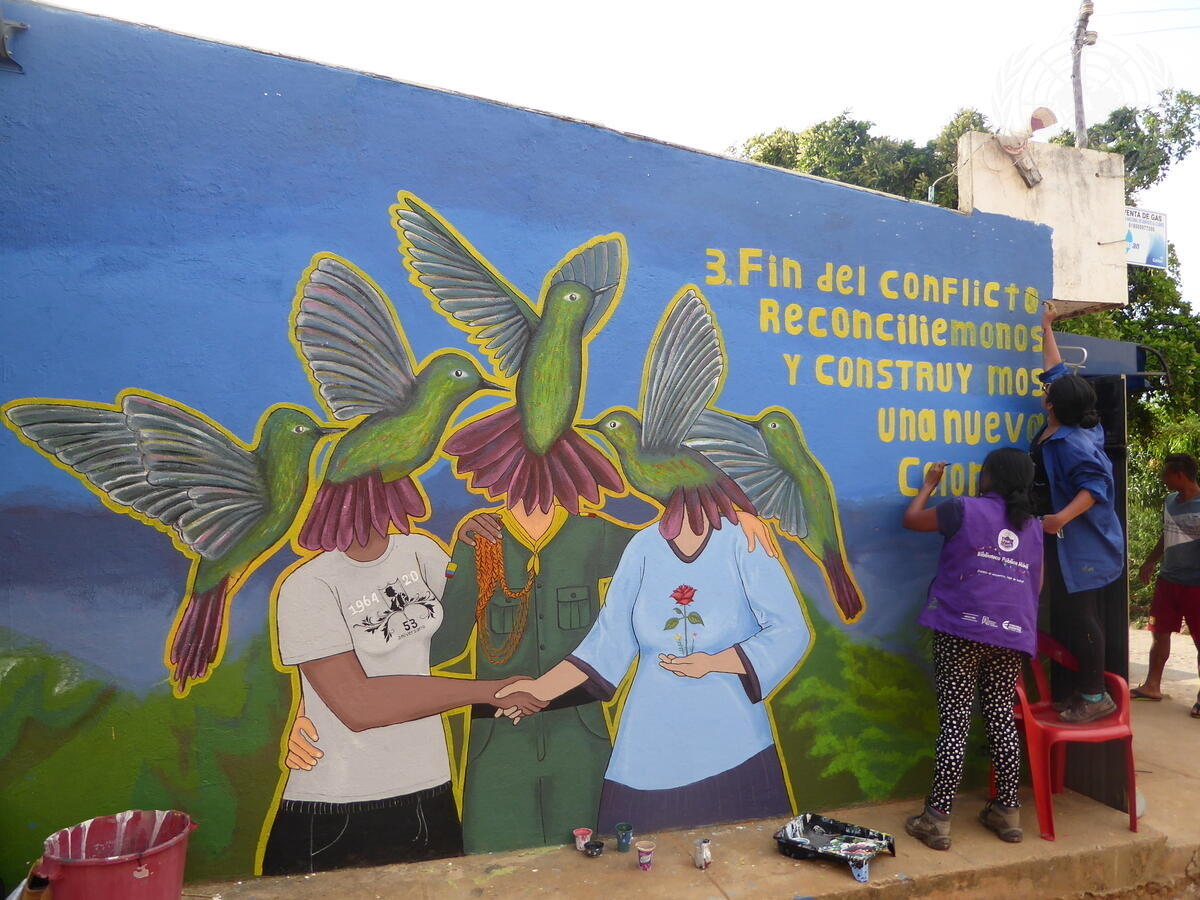The right to live in peace of the community of San José de Apartadó and Colombia: the appeal from academics

“It is time to restore the right of the Peace Community of San José de Apartadó and Colombia to live in peace.”
In 2016, a Peace Agreement was signed between the State of Colombia and the FARC-EP, the Revolutionary Armed Forces of Colombia - People's Army in order to end the 60-year-long internal war. The Peace Agreement invoked truth, justice, reconciliation, and non-repetition as its core principles intending to promote a lasting peace. The Pace Agreement has been and still is the main instrument to promote the peace process in Colombia.
Despite the efforts of the Peace Agreement, violence is still very present within the population. The statistics of the last four years do not look promising: on average, one leader is killed every two days, one massacre happens every four days, and every week one former FARC peace signatory is killed.
The security conditions of the Country have deteriorated, threatening the physical and cultural existence of populations that are pivotal in the peace process such as the community of San José de Apartadó. In March 2024, two community members, Nallely Sepúlveda and Edinson David, aged 30 and 15, were murdered.
The San José Community, founded in 1997, is well known for its humanitarian and socio-political commitment towards peace. It is located in a productive territory where drug trafficking by paramilitary groups and control of the territory and of profits contribute to spreading violence. Due to the ongoing violence against the Community, the Constitutional Court of Colombia and the Inter-American Court of Human Rights have requested their rights to be protected.
Since 2018, there have been instances of threats, murders, forced displacement, land dispossession, and exploitation of natural resources in the area. Illegal deforestation occurred between 2018 and 2023 in areas near the CdP, which are also designated as protected land. There is a high likelihood that these practices will not only persist but escalate, potentially leading to systematic human rights violations and breaches of international humanitarian law. This directly affects the dignity and well-being of the CdP members and their social, economic, and communal activities. Hence, the seriousness of this situation should not be underestimated.
The Commission for the Clarification of Truth, Coexistence, and Non-Repetition notified that the conflict risks breaking out again, due to the weak presence of the state in the territories, the use of violence, and the presence of different actors exerting control within the territories.
A group of academics signed an appeal to express their concerns regarding the ongoing human rights violations affecting the Peace Community of San Josè de Apartadó and to reject the violence against the Peace Community. The efforts of the international community and the academic world must play a role in implementing the peace agreements. Moreover, the signatory academics express full support for the territorial peacemaking efforts by the Peace Agreement Implementation Unit.
The academic world believes that, as in the Peace Agreement, prioritizing human rights, victim support, territorial integration, social inclusion, rural reform, political participation, and combating drug trafficking is crucial for strengthening democracy in Colombia and resolving social conflicts without illegal armed intervention.
In conclusion, the signatory academics call for dismantling paramilitary groups and illegal actors, providing legal protection and land formalization for the Peace Community of San José de Apartadó, including the Serranía del Abibé, and establishing a commission to evaluate the justice system's effectiveness in addressing crimes against the Peace Community and ending violence.
You can read the full appeal in the document attached below.

